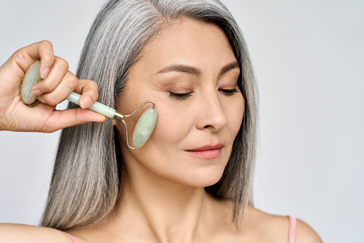Does Elderberry Help With Allergies?
Posted by Mike Miryala on

If you’ve ever suffered from allergies, you’d agree that it can be quite disturbing as it often interferes with giving your best in everyday tasks.
Well, Nettlesome issues like allergies and asthma are quite common in the United States. In fact, according to reports, about 50 million Americans suffer from allergies.
Little wonder, people are seeking effective measures to help with allergies, as many OTC options have turned out to be either hit or miss.
Interestingly, some people still remember the good old days when a simple home remedy could help solve our problems. And natural products, such as Elderberry, have been proven effective in dealing with allergies.
Studies even show elderberry-based therapies are used widely in Ayurveda, which is focused on holistic healing.
You might be wondering, “Does Elderberry help with allergies?” Well, in this article, we shall discuss at length about the properties of these dark-purple antioxidant-rich berries and its potential anti-allergic benefits.
Let’s get started with some interesting facts about the Elderberry plant.
What is Elderberry?
Elderberry or Elder is a name used to describe different species of “Sambucus” – a genus of flowering plants belonging to the family Adoxaceae. The berries of the Elderberry plant also called Elderberries and its flowers have been used for medicine many centuries back.
Elderberry is native to Africa, Europe, and some parts of Asia, but right now, it is a popular plant in the United States, and that’s because of its medicinal properties that have been widely studied.
Now, we mentioned there are many varieties, but the most common species used for medicinal purposes is the Sambucus nigra, which is a deciduous tree, growing up to 32 feet tall with blue-black berries and cream-white flowers.
However, this species has other common names, including European elderberry, European elder, black elder, and European black Elderberry.
The berries of this plant are commonly used in jams, syrups, wine, and other medicinal preparations. They are naturally high in vitamin A, vitamin B6, vitamin C, potassium, iron, among other essential nutrients.
Sambucus nigra has been proven to contain more super-food flavonoids and vitamins than blackberries, goji berries, blueberries, and it is one of the most potent natural remedy to tackle cold and flu.
If that’s not enough, Hippocrates – the father of modern medicine – once described the elderberry tree as “a medicinal chest.”
And that’s because it has strong antioxidant, immune-modulating, and antimicrobial properties, which helps treat a wide array of health concerns, including allergies, chronic fatigue, sinus, nerve pains, inflammation, constipation, and more.
You may take your time to learn about the many interesting health benefits of Elderberry.
Now, let's talk about Allergies. Don’t forget we’re still going to discuss how elderberry helps with allergies, so continue reading!
What are Allergies?
An allergy is a response mechanism of your immune system when it senses a foreign body or something dangerous attacking your body.
In other words, it’s like a troop’s warning against a looming invasion by the enemies.

These enemies or dangerous foreign bodies are called “Allergens” and may be any of the following:
- Drugs
- Pollen
- Latex
- Mold
- Certain foods
- Insect stings
Allergies often cause red, itchy rash on your skin, and this may be accompanied by watery eyes, runny nose, or breathing problems.
Although doctors often prescribe drugs or antihistamine to deal with prolonged and severe symptoms of allergies, natural anti-inflammatories, such as Elderberry, have been found to help with allergies and even asthma.
Let’s dive into how this plant works for these conditions.
How Does Elderberry Help with Allergies?
Several studies have shown how Elderberry or elder extract is highly effective in tackling allergies and mitigating flu and cold-like symptoms.
One study looked into the effects of elderberry supplementation on air travelers having symptoms of a cold. The result showed that travelers who used this herbal supplement ten days before their travel time up until five days after arriving at their destination, experienced a shorter duration of their cold and significant reduction in cold symptoms.
Another study randomized patients into two groups. The first group was given four of 175 mg of elderberry extract daily, while the second group took a placebo daily, and both groups followed this routine for two days.
At the end of the study, the group treated with elderberry extract showed significant improvement in flu-like symptoms, while the placebo group experienced no difference and even severity in symptoms.
Furthermore, a study published in the Journal of International Medical Research found that taking elderberry extracts within the first 24 hours of experiencing flu symptoms help shorten the duration of the symptoms by four days on the average.
So How Does Elderberry Exactly Work in the Body?

Elderberry extract is rich in flavonoids which help mitigate flu-like symptoms. The flavonoids bind to the H1N1 human influenza virus. That’s not all, these compounds also bind to the H5N1 avian influenza virus.
Elderberries have been found to be an excellent immune system booster, as these berries contain a high amount of anthocyanins – compounds, which have strong immunostimulant effects.
The best part is that research has found that elderberry extract is safe in the treatment of both cold and flu symptoms, including sneezing and coughing.
But is elderberry an antihistamine? No research has said that, instead, it does possess anti-inflammatory properties, which makes it work like an antihistamine in tackling allergic reactions.
In other words, since allergies trigger immune response and inflammation, elderberries have an ability to boost immune system function and calm inflammation, thereby, providing allergy relief.
Does Elderberry Work for Asthma?
Although research is still limited on the correlation between elderberry and asthma, many studies on other respiratory conditions have shown great potential for elderberry against asthma and many breathing problems.
In terms of the benefits for your lungs, several studies have shown great promise.
One study conducted among 180 patients found that supplementing with elderberry helped improve lung function and reduced upper respiratory problems.
A report containing many clinical studies on the use of elderberry for respiratory problems found that this natural herbal supplement caused a significant reduction in cold and influenza symptoms.
How to Take Elderberry for Allergies
There are many available elderberry forms, including gummies, tea, wine, juice, powder, capsules, syrup, ointments, lozenges, astringents, pills, infusions, and jams.
However, three forms are popular when it comes to allergies, and these include gummies, syrup, and tea
#1 - Elderberry gummies – This is the most effective intake method, and it combines elderberry extracts with other powerful nutrients, including vitamin C and Zinc – ingredients proven to support strong, healthy immune function. You can add Eldershield Gummies to your routine to boost your immune system and combat allergies.
#2 – Elderberry Tea – This option is great if you seek to enjoy a therapeutic warm beverage, but it often lacks extra zinc and vitamin C. However, you can add it to your diet to warm your body if you have cold and flu symptoms.
#3 – Elderberry Syrup – This is another good form of elderberry to get relief from allergy and asthma. However, just like the tea option, elderberry syrup lacks the additional zinc and vitamin C – which are two important nutrients people seek.
Dosage Recommendations and Potential Side Effects
The amount of elderberry extract you consume depends on the severity of your condition and form you choose.
For gummies, 150 – 300 mg per day is safe and effective dosage for allergy and asthma relief. But if your symptoms are at their worst, you may consider increasing your dosage to 1200 mg per day.
However, do not take such a high dosage for long periods. Moreover, you should speak with your doctor before using high dosage of elderberry extracts.
In terms of side effects, well, elderberry is very well-tolerated and side effects are rarely reported, and if they do, it is often mild.
But note the following:
- Do not consume raw elderberry as it may trigger gastrointestinal problems
- Do not take elderberry if you’re pregnant
- Speak with your doctor before using elderberry if you’re suffering from autoimmune conditions, such as Hashimoto’s thyroiditis.
- Be careful with elderberry if you’re diabetic
Final Remark
Elderberry has been proven to work for allergies, though more research is still ongoing in this regard. The Elderberry extract is a powerful natural relief for allergies with its anti-inflammatory properties and high amount of anthocyanins. This herb has been shown to be effective in improving the immune system and combats cold and flu symptoms, inflammation, as well as upper respiratory conditions.
If you’re thinking of trying this natural, safe, and effective remedy to deal with allergies and support a strong healthy immune function, we’ve got the ElderShield Gummies, which is a delicious blend of elderberry, vitamin C and zinc.
This elderberry supplement is clinically proven to work for allergies. That’s not all, it even works to increase your energy levels and improve your heart health. You can eat one every morning and even take a while on-the-go if you keep a busy routine.

You might also be interested in these Immunity-boosting supplements:
Vibrance Daily Greens

- Organic, Vegan Superfood Mix of 50+ Fruits, Vegetables, Probiotics, Prebiotic Fiber, Herbs and Antioxidants.
- Supports bone, joint and heart health
- Improves digestion
- Boosts & strengthens the immune system
Turmeric Soothe

- Turmeric is the fastest & strongest way to alleviate chronic inflammation, support digestion, and relieve pain
- Contains the purest, air-dried curcumin plus a patented mechanism for improved absorption
- Boosts immune system







